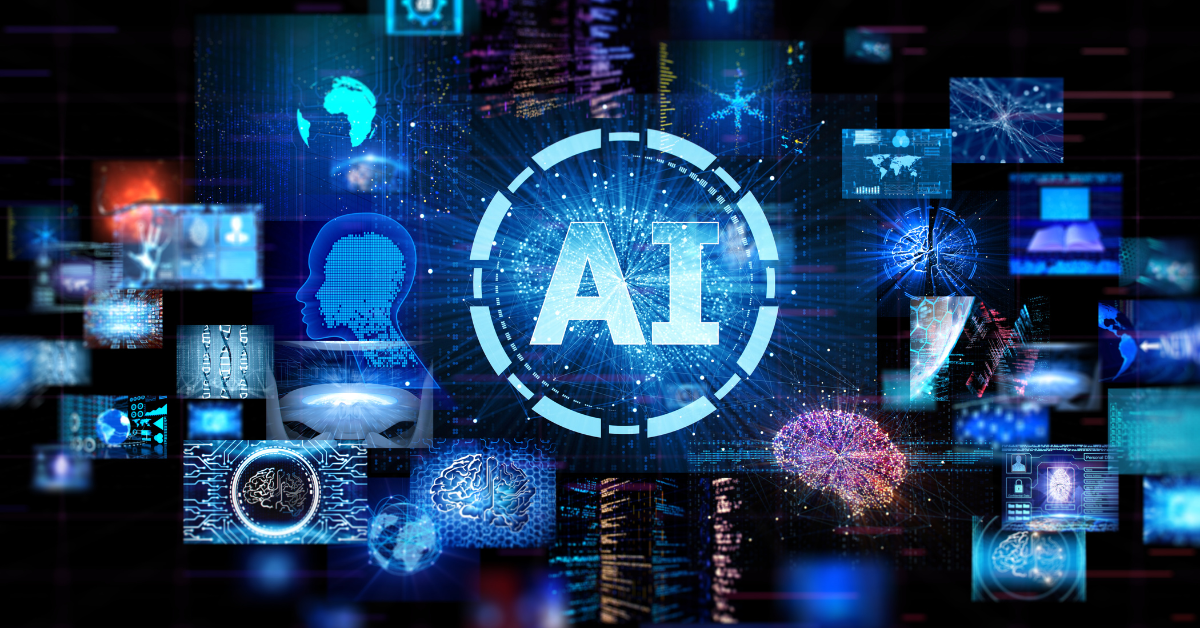How to Increase Employee Engagement: A Step-by-Step Guide for Christian Leaders
A flourishing workplace with highly engaged employees provides a rewarding experience for workers, leaders, and everyone in the sphere of influence...
6 min read
 Jay Bransford
:
January, 13 2025
Jay Bransford
:
January, 13 2025

Let’s face it: we’ve already been using forms of Artificial Intelligence (AI) for twenty-plus years; we’ve just called it by a different name: computers, automation, or smart bots.
Many applications are not perceived as AI because once they become commonly used general applications, they are no longer labeled AI (i.e., search engines, Siri, Alexa, Netflix, Amazon, autonomous vehicles, online strategy games, and more).
Yet even after years of using it, AI is still a hot topic, especially when considering how it fits within the mission and values of faith-based companies.
I spent the early years of my life at Vanderbilt University assisting with research about how to best utilize technology to enhance education. This eventually led me to spend 30 years in the field of human performance consulting. Now, as the CEO of Best Christian Workplaces (BCW), we utilize technology to collect feedback efficiently and accurately from tens of thousands of employees every year, ultimately helping leaders create flourishing organizations for maximum Kingdom impact.
Automation has already shown itself to transform the workplace by improving efficiency and speeding up processes. A 2020 survey study by Deloitte revealed that 80% of the top leaders believe AI is essential to their success.[1] Among those, there are four types of leader responses to AI:
Whether you want to automate repetitive tasks like data entry, invoice processing, and customer service responses or personalize employee training programs through adaptive learning platforms, AI can do it for you and, if used wisely, is a valuable tool we might regret ignoring.
Simply put, automating complex business processes saves time and money and reduces costly errors. By eliminating menial tasks, businesses can supercharge their productivity and reduce budgets.
Many businesses, educational institutions, and non-profits use artificial intelligence to speed up the quality of service they provide to customers and staff alike. Let’s look at just one tool some Human Resource departments are using.
Amazon has been working on an Automated Applicant Evaluation system that will determine which job applicants possess the most potential for success.[2] Once hired, the onboarding process can be automated. Perhaps the employee’s first login would trigger a message to the team member coordinating training. This would then automatically share training videos and intelligently process the new hire’s paperwork, eliminating the need for a human to process forms manually. Automated business tasks like this one save a considerable amount of time and result in smoother processes.
LinkedIn helps companies hire using AI as well. They allow organizations to create mission and values-based screening criteria for applicants, speeding up the process. We utilize LinkedIn’s capabilities for this at Best Christian Workplaces, too.
AI can also analyze and predict trends in productivity, labor demands, and staff availability. Notifications can be sent immediately to the employees when shift changes are necessary or extra help is needed that day. Time tracking is crucial for fairness, payroll reporting, and compliance. It also tracks vacation time and sick leave. Flexible work arrangements and a work-life balance have become increasingly important in the face of growing labor shortages and remote workers. This results in lower absenteeism, staff satisfaction, and reduced turnover.
Compassion International uses AI to fight poverty and connect sponsors with children in need. Their AI-powered tools translate letters between the two, streamlining the process. They also use facial recognition to verify child identities and avoid fraud. All of Compassion’s supplies, educational materials, and medical resources get ordered and delivered efficiently using intelligent computer software.
Emails and other internal communications can benefit from AI as well. Even as I was writing this article, I used AI to suggest what topics to cover. It took me 60 seconds as opposed to 30 minutes.
The speed and efficiency can be enough to prove its worth. Consider how Bible translators are using AI. Translations are complicated and time-consuming. Some take years to finish. But in seconds, AI can help find mistakes or potential problem areas and highlight those for the person reviewing the translation for errors. Instead of reading the entire text, the individual can immediately find those problem areas so God’s Word can be provided to unreached people groups quickly.
With all the wonderful things AI can do to enhance your organization, many still have legitimate concerns about this ever-transforming technology. Some people even wonder if this is the start of Skynet from the sci-fi movie series The Terminator or, worse yet, ushering in the anti-Christ.
Amidst this distrust, Christians who see AI’s value are attempting to create faith-friendly tools like Bible Chat, a text-only AI platform specializing in providing biblical intelligence. This proves innovation can be used (like Gutenberg’s printing press) for God’s glory. Still, for the most part, Christian-based AI platforms are behind the curve. Maybe for good reason.
For instance, let’s say you want to use a chatbot on your website. While it might be helpful for address changes (since it eliminates distracting your employees from more vital tasks) it might cause customer frustration. If you’re a non-profit, perhaps you find AI useful for predicting giving trends and other developments. But would your donors prefer to talk to a human about updating their credit card information? Will that donor decide to give elsewhere from now on?
AI might be great for internet evangelism, which helps seekers find basic answers about Jesus or the Bible. But human Christians are still needed for nuanced responses to more complicated questions. There’s much controversy over one site called Ask Jesus, featuring a computerized Son of God that answers questions that are extra-biblical, non-theological, and secular. Sadly, many seekers use this instead of prayer or searching the Bible for truth.
It’s vital to understand that not all AI is high-quality or 100% reliable. Testing is an integral part of the process. If one product isn’t up to par, keep looking for a better one. Don’t despise Florida for one mosquito.
Most of all, we must carefully examine how AI might align or conflict with Christian leadership principles. We can monitor what we adopt by setting up policies and qualifiers rather than blindly accepting any new AI tool.
During his interview with BCW (episode #379 of the Flourishing Culture Leadership Podcast), John Hirst, Chief Innovation Officer at SIL, says they ask themselves these five vital questions when deciding to use any new AI component:
Regardless of your qualifiers, transparency helps to not mislead people. Consider including a note letting readers know when and how you have used AI in your projects, services, and/or communications.
Christian businesses, schools, and churches currently find great potential for AI to advance their mission. They can uphold their moral principles and expand their reach by integrating AI that enhances care-oriented solutions like sermons, pastoral counseling, social support, or other features that safeguard justice, human dignity, and worth by weeding out algorithm biases or discrimination.
Saddleback Church utilizes AI in its member care system. While still respecting privacy and confidentiality, they can identify congregants who may need support based on their absences on Sundays or in small groups during the week.
Micah 6:8 says, “He has shown you, O mortal, what is good. And what does the Lord require of you? To act justly and to love mercy and to walk humbly with your God” (NIV).
By stewarding compassion, love, and care, our mission to model Christ and expand His kingdom can blossom and even boom!
So, what tips can we integrate to ensure we use AI for God’s glory? Let’s explore a few.
By approaching AI adoption prayerfully and strategically, Christian-led organizations can harness their potential to glorify God while serving their customers, communities, and donors more effectively.
Like virtually all technology, AI is neither good nor bad but merely another tool we can use for the good of others or for selfish gain. The challenge as Christians is to remember to assess the benefits and ethical implications of using AI while stewarding the standards of truth, integrity, and human dignity well so we may at all times glorify the Lord.
[1] Four futures of generative AI in the enterprise: Scenario planning for strategic resilience and adaptability. https://www2.deloitte.com/us/en/insights/topics/digital-transformation/generative-ai-and-the-future-enterprise.html
[2] Could Amazon Be Replacing Recruiters With Artificial Intelligence Software?. https://www.forbes.com/sites/jackkelly/2022/11/28/could-amazon-be-replacing-recruiters-with-artificial-intelligence-software/?sh=71d125d6534f

A flourishing workplace with highly engaged employees provides a rewarding experience for workers, leaders, and everyone in the sphere of influence...

When you consider the traits of a successful leader, you may focus on qualities such as strategic thinking, bold decision-making, confidence, or...

High-performance teams leverage the skills of everyone in your organization toward a common goal, achieving more together than people can on their...